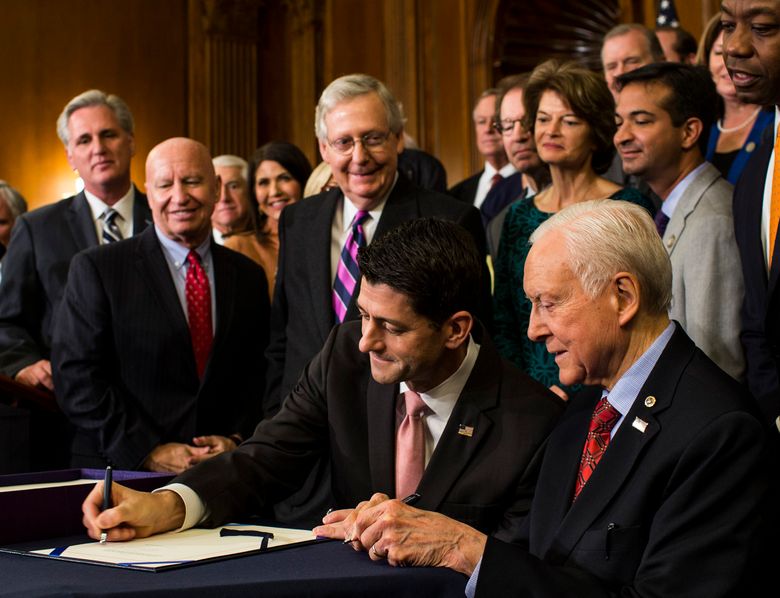
For the new year, Republican leaders in the House have their sights on decades-old programs for the poor that they say are too easily exploited by those who do not need them. Mr. Trump is expected to move forward with a long-promised program to rebuild roads, bridges and other infrastructure.
And Senator Mitch McConnell of Kentucky, the Republican leader, is speaking gamely of bipartisanship, especially on legislation to protect young undocumented immigrants brought to the country as children, whose Obama-era protection from deportation will run out in March.
On Jan. 20, the latest stopgap spending measure expires, giving lawmakers from both parties another chance to force resolutions on outstanding immigration and health care measures, along with efforts to raise caps on military and domestic spending. And an $81 billion package of relief for hurricane and wildfire victims that passed the House last week awaits Senate action.

But all of those plans will play out in an election year that is shaping up as a referendum on Mr. Trump, whose historically low approval ratings could deflate any Republican overtures to Democrats not anxious to boost the president.
“Hope springs eternal, but they’d have to be a real reversal from the way they’ve operated now,” said Senator Chuck Schumer of New York, the Democratic leader.
Mr. McConnell declared 2017 a year of “extraordinary accomplishment,” a boast that only weeks ago seemed impossible. But a year marred by public spats between the president and Republican leaders in Congress was capped off with a rewrite of the tax code that cut corporate tax rates, favored business owners and reduced income tax rates, at least temporarily, for most families. The same law opened Alaska’s Arctic National Wildlife Refuge to oil exploration, a goal sought by Republicans for decades.
It also eliminated tax penalties in the Affordable Care Act intended to force most Americans to have health care. Ending the so-called individual mandate was Republicans’ most direct blow to President Barack Obama’s signature domestic achievement after a year of misses and ineffectual attacks.

Those achievements came after the quiet confirmation of 12 federal appeals court judges — the most in a single year since the appeals courts were established in 1891. The confirmations will remake the federal judiciary, stocking it with young and very conservative judges who will serve for decades to come. And those came along with the confirmation of Neil M. Gorsuch to the Supreme Court.
“With the new administration coming in, it has been more chaotic and more politicized than I would like to think,” Senator Susan Collins, Republican of Maine, said. “But we do have more accomplishments than I think we’re generally given credit for.”
Post a Comment